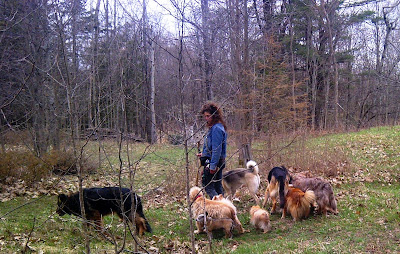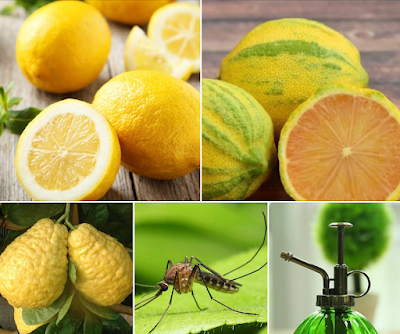Benadryl for Dogs – Why I DON’T Recommend Using it
★ 5 min read
In This Article:
- Why I Don't Recommend Benadryl for Dogs and Cats
- Listed Ingredients in Benadryl
- Health Damaging Ingredients in Benadryl
- Adverse Side Effects of Benadryl
- Now That You Know Benadryl is Not Safe
- Natural Alternatives to Benadryl
- Quercetin, Nature's Antihistamine
- Homeopathic Remedies
1.0 Why I Don't Recommend Benadryl For Dogs and Cats
Benadryl (Diphenhydramine) is not good for dogs and cats. As well, other conventional antihistamines are not good for dogs.
Benadryl Allergy Ultra Tab, or Benadryl LiquiGels are synthetic-chemical medications. Many veterinarians recommend these products for dogs and cats with allergy symptoms, swelling from insect stings, spider bites, etc.
If you use Benadryl Ultra Tabs, or LiquiGels in an emergency situation, once or twice
over the span of your dog’s life, there is little to no cause for concern.
However, giving Benadryl to a dog or cat on a regular to semi-regular
basis, is not good for long-term health.
2.0 Listed Ingredients in Benadryl
To understand the negative health impacts of benadryl, we need to look at ingredients in benadryl.
Benadryl Allergy Ultra Tab Ingredients
Medicinal
(active) ingredients:
- Diphenhydramine
Non-medicinal
(inactive) ingredients :
- Candelilla wax, colloidal silicone dioxide, crospovidone, hypromellose, microcrystalline cellulose, polyethylene glycol, providone, pregelatinized starch, starch, stearic acid, titanium dioxide, and talc.
Benadryl LiquiGels dye-free, Ingredients
Medicinal (active) ingredients:
- Diphenhydramine
Non-medicinal (inactive) ingredients:
- Gelatin, glycerin, polyethylene glycol, purified water, and sorbitol Capsules are imprinted with edible dye-free ink
3.0 Health Damaging Ingredients in Benadryl
Now we can delve into the health deteriorating affects caused by the 'inactive' ingredients (listed ingredients and 'incidental' {hidden} ingredients).
Listed Ingredient - Titanium
dioxide
Titanium dioxide is a
neurotoxin, that causes: confusion, impaired thinking, memory loss and ultimately dementia. The International
Agency for Research on Cancer (IARC) classifies titanium dioxide as “possibly
carcinogenic to humans”.
Listed Ingredient - Talc
Talc is
classified as a “possibly carcinogenic to humans”. Truth is talc, like titanium
dioxide is an
health damaging additive.
Listed Ingredient - Microcrystalline
Cellulose
Microcrystalline cellulose is
used as a filler (bulking agent). It is made from various ‘natural’ sources, such
as:
Corn, wheat and other grains are common food allergens
for dogs. Does it make sense to give a dog suffering from allergies, more
allergens?
Hidden Ingredient: Glyphosate Residue
GMO corn, non-organic
wheat and other non-organic grains are treated with the carcinogenic herbicide glyphosate (Round-Up). In 2015 IARC concluded that glyphosate presents "sufficient evidence of carcinogenicity". IARC designated glyphosate a probable human carcinogen.
5.0 Now That You Know Benadryl Isn't Safe
6.0 Natural Alternatives to Benadryl
Listed Ingredient - Stearic Acid
Stearic acid suppress and destroys the body’s T-cells.
T-cells play a key role in keeping white blood cells healthy. Stearic acid also damages the liver. Learn more about stearic acid in this article.
Listed Ingredient - Pregelatinized Starch
Pregelatinized starch is (typically) derived from GMO corn.
Hidden
ingredient: GMO corn and glyphosate residue
Listed Ingredient - Starch
Starch is (typically)
derived from GMO corn.
Hidden Ingredient: glyphosate residue
Listed Ingredient - Polyethylene Glycol (PEG)
PEG is a petroleum based compound
that can be contaminated with ethylene oxide.
Hidden ingredient: ethylene oxide
Ethylene oxide is a known carcinogen, and may also cause genotoxicity. As the ethylene oxide
is an ‘unintentional ingredient’ the FDA, Health Canada, the FSA place no restrictions
on its presence in Benadryl.
Listed Ingredient – Gelatin
Gelatin used in Benadryl is
sourced from rendered factory-farm (Confined Animal Feeding Operations –
CAFO) raised animals. CAFO animals are fed a diet of GMO corn, GMO soy, and other toxic
laden substances such as ractopine.
Hidden ingredient: glyphosate reside, and
other synthetic-chemical residues.
Listed Ingredient –
Glycerin
The glycerin used in
Benadryl is sourced from animals (CAFO raised) and/or from GMO corn, GMO soy or palm oil.
Hidden Ingredient: glyphosate residue.
4.0 Adverse Side Effects of Benadryl
Adverse side effects of Benadryl include:
a partial list
Gastrointestinal
- Inappetence
- Constipation
- Nausea
- Vomiting
Neurological
- Confusion
- Depression
- Drowsiness
- Dizziness
- Headache
- Irritability
- Nervousness
- Over excitement
Urinary Tract
- Difficulty urinating
- Painful urination
Other
- Congestion in chest (increase of)
- Dry mouth, nose and/or throat
- Eye sight issues
- Heart beat increase
- Muscle weakness
- Restless leg syndrome
- Seizures
- Weight gain
5.0 Now That You Know Benadryl Isn't Safe
While Benadryl may temporarily
alleviate allergy symptoms, use of Benadryl can also contribute to:
- Toxic load.
- Inflammation in the body.
- Chronic disease.
The FDA, Health Canada and
the FSA do not consider the substances I list above, a health hazard when
ingested in ‘small amounts’.
However, Health Canada, the FDA and FSA do not
assess:
- Long-term effect of ingesting multiple ‘small amounts’ present in a single product.
- Overall and accumulated impact of ingesting multiple food products, drugs, supplements and topical products containing these substances.
The FDA, Health Canada and the FSA do not factor-in
impact of these substances on an individual's personal circumstances.
Now you know why I do not
recommend giving Benadryl (or its generic version - Diphenhydramine) to dogs and cats.
So, what can you use
instead of Benedryl? I will provide you with a few of the many natural alternatives.
6.0 Natural Alternatives to Benadryl
6.1 Quercetin a Natural Antihistamine for Dogs and Cats
Quercetin is called ‘nature’s Benadryl'. Quercetin is
a naturally occurring flavonoid found in many plants. Quercetin can be obtained by
consuming foods that naturally contain quercetin. However, when allergy symptoms are present a concentrated form of quercetin is required.
Learn more about quercetin including:
- Health benefits for your dog and cat.
- Dosage instructions and dosage by body weight.
Go to this article.
6.2 Homeopathic Remedies
6.2.1 Apis Mellifica Homeopathic Remedy
The homeopathic remedy, Apis Mellifica is helpful for treating hot spots,
insect bites and stings, swollen, puffy, watery-filled inflammation, eyes swollen partially or mostly shut from
environmental allergies, etc.
Other symptoms that indicate Apis Mellifica is a good match for your dog and cat:
- The individual may also be sensitive to touch.
- Pain is better with cold and worse with heat.
6.2.2 Belladonna Homeopathic Remedy
The homeopathic remedy Belladonna can be helpful for treating: asthma, hay fever symptoms, hot spots that appear
suddenly, the skin is bright red and
shiny but dry.
The three remedies listed above are a sampling of the
many natural treatments that can replace Benadryl.
When choosing a natural treatment make sure you check health contradictions, and drug
interactions to ensure that the remedy is suitable for your dog and cat’s
personal circumstances.
6.2.3 Dosing Guidelines
Dosing for acute situations, e.g. bee sting, insect bite, sudden appearance of hot spots, etc.
A Single Dose Is:
- Small dogs: 3 pillules
- Medium dogs: 4 pillules
- Large dogs: 4 pillules
- X-Large dogs: 5 pillules
Dosing:
- Give three single doses fifteen (15) minutes apart.
- If necessary, another one or two single doses can be administered later in the day, keep these doses at least an hour to several hours apart.
- When possible, best to dose at least 30 minutes away from food.
Holistic Diet, Nutrition, Wellness Services Tailored to Your Individual Dog and Cat
For information about my holistic diet, nutrition, wellness services visit my:
Maintain good health | Address acute and chronic health issues | Pre and post surgery support and recovery
My holistic wellness services are available worldwide via video consultation.
🌎 USA | Canada | UK | Europe | Australia | New Zealand | Asia | South and Central America | Africa | UAE
📱 FaceTime | Facebook | Skype | WhatsApp
Holistic Behavioral Services For Your Dog
For information about my holistic behavioral services visit my:
For dogs of all ages, sizes and breeds
My holistic behavioral services are available locally in-person and worldwide via video session.
🌎 USA | Canada | UK | Europe | Australia | New Zealand | Asia | South and Central America | Africa | UAE
📱 FaceTime | Facebook | Skype | WhatsApp
Affiliations to Companies
✓ None.
✓ I don't sell food or supplements.
✓ I'm not aligned with any companies.
✓ None.
✓ I don't sell food or supplements.
✓ I'm not aligned with any companies.
Article by Karen Rosenfeld
















